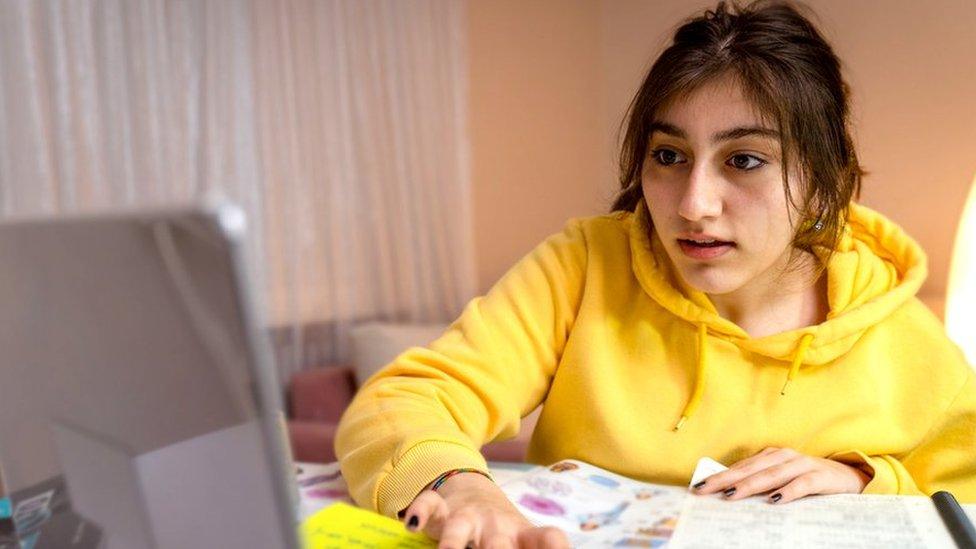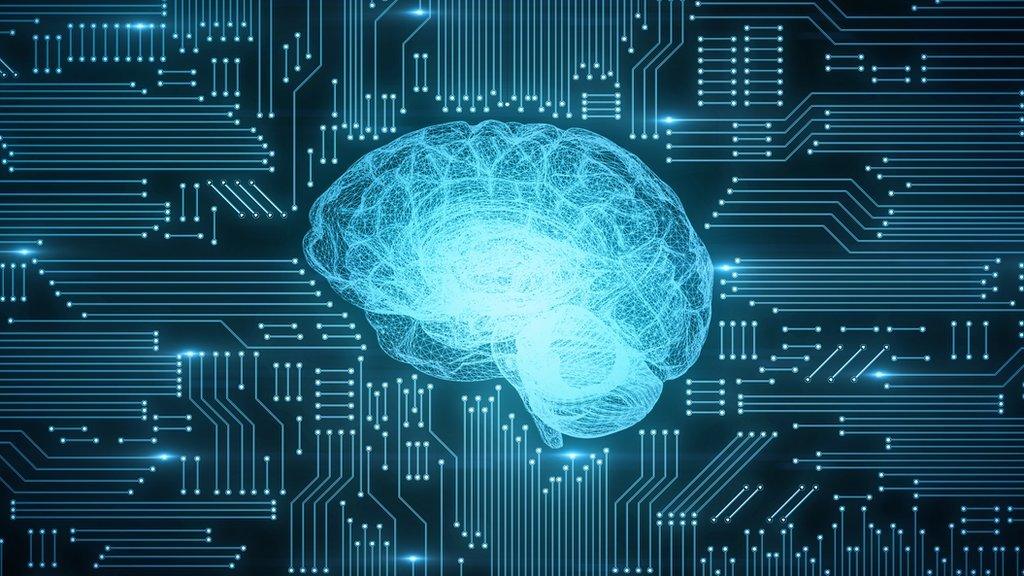'I massively regret using AI to cheat at uni'

Hannah used an AI tool in her first year at university after being ill with Covid
- Published
"We had two deadlines really close together and I just ran out of steam," says Hannah, a university student.
"I felt incredibly stressed and just under enormous pressure to do well. I was really struggling and my brain had completely given up."
In her desperation - and also suffering with Covid while facing the deadlines - she said she turned to artificial intelligence (AI) to help her write one of the essays.
Hannah, not her real name, is now warning others about the potential consequences of using generative AI to cheat at university.
She faced an academic misconduct panel, who have the power to expel students found to be cheating.
Her case highlights the challenge that universities face as they encourage students to become AI literate, whilst discouraging cheating.
Hannah's misuse of AI was discovered when her lecturer routinely scanned her essay using detection software.
She said: "My stomach was in knots and I was sitting outside the office. I was like 'this was really stupid'."
“When it got flagged, me and my tutor were sat looking through it and he said you were doing really well up until this point, and then it all went down hill from there.
“I’d been scored a zero and I then got an email from my tutor saying we think there’s been some academic misconduct.”
'Kicked out'
Hannah added: “I think in my head initially I thought, 'just deny it, don’t say anything', but then I saw on the screen an AI percentage and it was quite high and I just lasted three minutes before I broke down and said I had used AI to help me finish the essay."
She was cleared as a panel ruled there wasn’t enough evidence against her, despite her having admitted using AI.
Hannah said she thinks it was a slap on the wrist designed to serve as a warning to other students.
"I could have been kicked out," she said.
“I do massively regret my choice, I was achieving really well, getting a lot of firsts, and I actually think that might have also been the problem, that I needed to maintain that level of grades, and it just kind of really pushed me into a place of using artificial intelligence.
“The fact it was my first year, that’s probably also part of the reason why they decided they weren’t going to take it any further.
“It felt really bad at the end of it, it really tainted that year for me."
What is AI?
Generative AI is technology that enables a computer to think or act in a more human way.
It does this by taking in information from its surroundings, and deciding the best response based on what it learns.
Universities have been trying to understand what AI applications are capable of and introduce guidance on how they can be used.
The BBC's Ben Moore writes an essay using AI, but will he be found out?
'Embrace it'
Some universities ban the use of AI unless specifically authorised, while others allow AI to be used to identify errors in grammar or vocabulary, or permit generative AI content within assessments as long as it is fully cited and referenced.
At a bar on the outskirts of Canterbury students here know the limits, and say they only use AI as an aid, like they might a search engine.
A student called Taylor told us: "You’ve got to embrace it. You can ask it questions and it helps you out.
"You can use it to create a guide to structure your work. It’s good for exam prep too."
And fellow student Zyren said she fell out with a friend who used it extensively.
"They openly admitted to me they use AI, full on copied and pasted an essay they got from Chat GPT. A part of me felt annoyed as it hit me that they might get a higher score than me.”
'Potential risks'
Universities UK, an organisation of vice-chancellors and principals of universities, said: “Universities are aware of the potential risks posed by AI tools in the context of exams and assessment.
"[They] all have codes of conduct that include severe penalties for students found to be submitting work that is not their own, engaging with students from day-one on the implications of cheating and how it can be avoided.”
A Department for Education spokesperson said: "Generative AI has great potential to transform the Higher Education sector and provides exciting opportunities for growth. However, integrating it into teaching, learning, and assessment will require careful consideration.
“Universities must determine how to harness the benefits and mitigate the risks to prepare students for the jobs of the future."
Related topics
- Published27 June 2024

- Published9 May 2023

- Published9 August 2019
